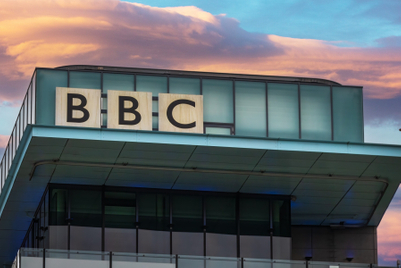
McDonald’s UK has removed the smile from millions of its Happy Meal boxes to mark Mental Health Awareness Week, currently under way (13-19 May).
Created by Leo Burnett UK and Ready10, “The meal” is inspired by research commissioned by the fast-food brand that found almost half (48%) of UK children feel as if they must be happy all the time, even if they do not want to be.
In light of this, McDonald’s has created and distributed 2.5 million limited-edition Happy Meal boxes to more than 1,400 McDonald’s restaurants across the country to highlight that children do not need to be happy all the time.
Selected locations will also receive stickers showcasing an array of emotions that children experience, encouraging kids to replace the smile with whatever emotion they like.
Louise Page, head of consumer communications and partnerships at McDonald’s, said: “We know how important it is to help stimulate open conversations about mental health in families, and through this change to our Happy Meal box, we hope many more families are encouraged to kickstart positive conversations around children’s emotions and wellbeing.”
The campaign has been created in partnership with BBC Children in Need, and a dedicated hub has been designed to provide families with access to resources encouraging conversations on emotional well-being with children.

The hub will be available to access via a QR code on the limited-edition Happy Meal boxes, as well as the McDonald’s website and social media channels.
A short film supports the campaign, which depicts children sharing the various emotions they feel from nervous to scared.
The ad then shows the children reacting to the new Happy Meal box and choosing what sticker they would like to replace the smile with.
The voiceover for the film was provided by former England footballer and broadcaster Rio Ferdinand. He also participated in photography, media interviews and social media amplification to support the campaign.
Andrew Long and James Millers, executive creative directors at Leo Burnett UK, said: “Happy Meal is all about bringing families together, and to do that it’s important we’re open with all our emotions.
“By using the most famous children’s meal in the country to deliver this message, we hope this populist campaign will reach and resonate with families across the nation, and foster important conversations around children’s mental health.”

“The meal” will run throughout Mental Health Awareness Week.
The film will be supported by out of home, social and subscriber video-on-demand content as well as a variety of parenting influencers providing their own viewpoint on family conversations around conveying emotion.
Media planning and buying was handled by OMD UK. Ready10 developed the idea alongside Leo Burnett UK. Ready10 also handled PR, talent and influencer recruitment, while Leo Burnett UK oversaw the creative output.
Kate Addy, managing partner at Ready10, added: “The Happy Meal smile is one of McDonald’s most iconic brand marks and we knew suggesting it was removed from the boxes would be a big ask, but we were delighted when McDonald’s also saw the potential to positively impact millions of children with this important campaign.
“We know the insight at the heart of the idea is one that will resonate with families across the country, and it’s been a privilege to create something which will encourage children and parents to be more open about their emotions.”


+(900+x+600+px)+(3).png&h=334&w=500&q=100&v=20250320&c=1)
+(900+x+600+px).jpg&h=334&w=500&q=100&v=20250320&c=1)
.jpg&h=334&w=500&q=100&v=20250320&c=1)


.jpg&h=334&w=500&q=100&v=20250320&c=1)
+(900+x+600+px).png&h=334&w=500&q=100&v=20250320&c=1)

+(900+x+600+px)+(1).png&h=334&w=500&q=100&v=20250320&c=1)





.jpg&h=268&w=401&q=100&v=20250320&c=1)


